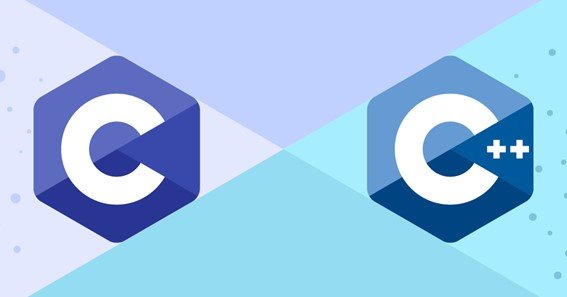What is C Programming Language?
C is a machine-independent, procedurally or structurally oriented programming language that is widely utilized in a variety of applications. The fundamental programming language, C, is used to create anything from operating systems (like Windows) to sophisticated applications like the Git repository, the Oracle database, the Python interpreter, and many others.
Given that it serves as the foundation for other programming languages, the C programming language has been dubbed “god’s a programming language.” Knowing the C programming language makes learning other programming languages simple. Dennis Ritchie, a legendary computer scientist, created the C programming language at Bell Laboratories. It differs from other programming languages in that it has a few extra features.
click here – 9 Steps to Launch a Successful Digital Marketing Career
What is C++ Programming Language?
Bjarne Stroustrup created the special-purpose programming language C++ at Bell Labs in the 1980s. Though C++ is an object-oriented programming language, making it safer and more structured than C, the two languages are so close and compatible that C++ can run 99% of C programs without modifying any source code. To learn C C++ training in Chennai you can find many institutes like LIVEWIRE, FITA, Softlogic Systems, and more.
The differences between C and C++ are as follows:
Definition: While C++ is an object-oriented programming language that supports the concept of classes and objects, C is a structural programming language that does not.
Programming Language Kind: While C++ is an object-oriented programming language that supports the concept of classes and objects, C enables structural programming, where the code is verified line by line.
Developer of the language: The C language was created by Dennis Ritchie at Bell Laboratories, and the C++ language was created by Bjarne Stroustrup around the year 1980.
Subset: A superset of the C programming language is C++. 99% of C code can be executed by C++, but C++ code cannot be executed by C.
Security: Because C does not provide encapsulation and information hiding, outsiders can easily change the data in C, whereas C++ is a very secure language because it does support encapsulation and information hiding. Functions and data are free entities in the C language, however, in the C++ language, they are all contained in objects.
Type of Strategy: C++ uses a bottom-up technique, whereas C uses a top-down one. The top-down method divides the major modules into tasks, which are then divided into sub-tasks, and so forth. The next-level modules are developed after the lower-level modules using a bottom-up methodology.
Overloading of Functions: The ability to have many functions with the same name but different parameters is known as function overloading. Function overloading is supported by C++ but is not supported by C.
Overriding a Function: Function overriding is a feature that gives a function that is already defined in the base class a customized implementation. Function overriding is supported by C++ but is not supported by C.
Definitional variables: While reference variables are supported by C++, they are not supported by C.
Keywords: C++ supports 52 keywords, while C contains 32 keywords.
Treating Exceptions: It is necessary to employ methods that allow exception handling because C does not directly support exception handling. Using a try-catch block, C++ directly supports exception management.
Namespace Attribute: A namespace is a feature that organizes objects, classes, and methods under a single name. While C++ supports the namespace feature that prevents name clashes, C does not have this capability.
Input-output Procedures: In C, the input and output actions are handled by the scan f and print f functions, whereas in C++, the input and output operations are handled by cin and cout, respectively.
Allocating and Releasing Memory: The memory allocation and de-allocation procedures calloc(), malloc(), and free() are supported in C. The memory allocation and de-allocation operators in C++ are new and deleted, respectively.
Inheritance: The ability to inherit enables the child class to utilize the parent class’s properties. In contrast to C++, the C language does not enable inheritance.
Heading file: While C++ programs use header files, C programs do not.
click here – What Is Multilayer Switch?
C Programming Language Advantages
- C language contains a comprehensive library that provides a variety of fundamental features.
- C language is case-sensitive. It also provides a dynamic memory section.
- The organized programming language C enables the division of complex projects into simpler projects known as capabilities. Additionally, it enables unrestricted information development across various capacities.
- C programming is the only middle-level programming language that possesses characteristics of both high-level and low-level languages. It can be used for low-level programming languages like scripting for kernels and drivers as well as high-level programming languages for software applications.
- C is a programming language that is globally helpful and capable of handling complex corporate applications, games, designs, and applications requiring estimations.
- The prearranging framework apps that make up a substantial portion of the Windows, UNIX, and Linux operating systems are created using the incredibly flexible programming language C. To learn C programming training in Chennai you can find many institutes like LIVEWIRE, FITA, Softlogic Systems, and more.
C++ Programming Language Advantages
- Strong, knowledgeable, and rapid describe the language C++. It locates a wide variety of applications, including continuous numerical re-enactments, 3D gaming illustrations, and GUI programs.
- Because of its outstanding compactness, C++ is frequently chosen when developing multi-gadget, multi-stage applications.
- The capability library in C++ is extensive.
- In contrast to C, C++ allows for exemption handling and capability over-burdening.
- A programming language with an item-based structure, C++ includes classes, legacy, polymorphism, information reflection, and epitome.
Final Thoughts
LIVEWIRE not only offers basic programming language courses but also offers some IT professional courses like Java and Python. In fact, LIVEWIRE is the best Python Training Centre in Chennai for bright careers.
For those who possess C, and C++ programming skills, a variety of careers are available. These students may pursue careers as senior programmers, junior programmers, quality analysts, game programmers, software development programmers, C++ analysts, programming architects, and more.






